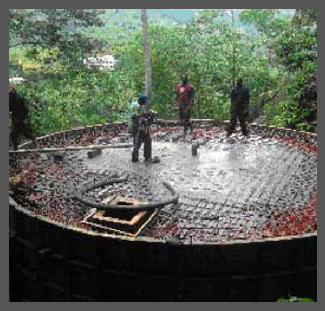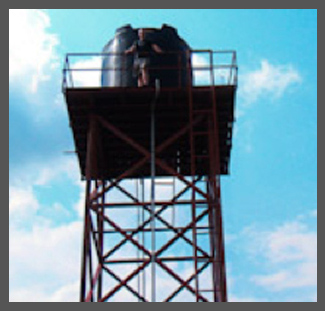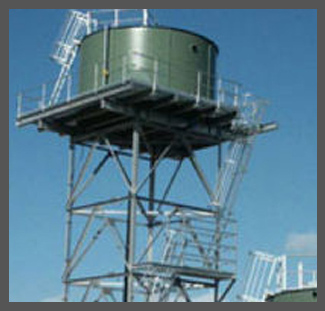Elevated storage tanks
Elevated tanks do not require the continuous operation of pumps, as it will not affect the distribution system since the pressure is maintained by gravity. Strategic location of the tank can equalize water pressures in the distribution system. However, precise water pressure can be difficult to manage in some elevated tanks.
The pressure of the water flowing out of an elevated tank depends on the depth of the water in the tank. A nearly empty tank probably will not provide enough pressure while a completely full tank may provide too much pressure. The optimal pressure is achieved at only one depth (which is even more specific for standpipes than for tanks elevated on legs). The length of the standpipe causes continual and highly unequal pressures on the distribution system. In addition, a significant quantity of the water in a standpipe is required to produce the necessary water pressure. The water below a certain level is therefore used only as a support, unless booster pumps are available for emergency use of this water.
While elevated tanks provide the best pressure, they are far-more expensive and generally, only used where supply is in high demand.
Elevated storage tanks link
- Cost advantage of the composite elevated tank. Landmark.
- Advantages for Elevated Water Towers. By Dennis Hartman, eHow Contributor.
- Mitigating the Impacts of Elevated Water Storage Tanks on Water Quality. Stantec Inc.
Acknowledgements
- Lesson 10: Water Tank Design and Maintenance. Mountain Empire Community College.


